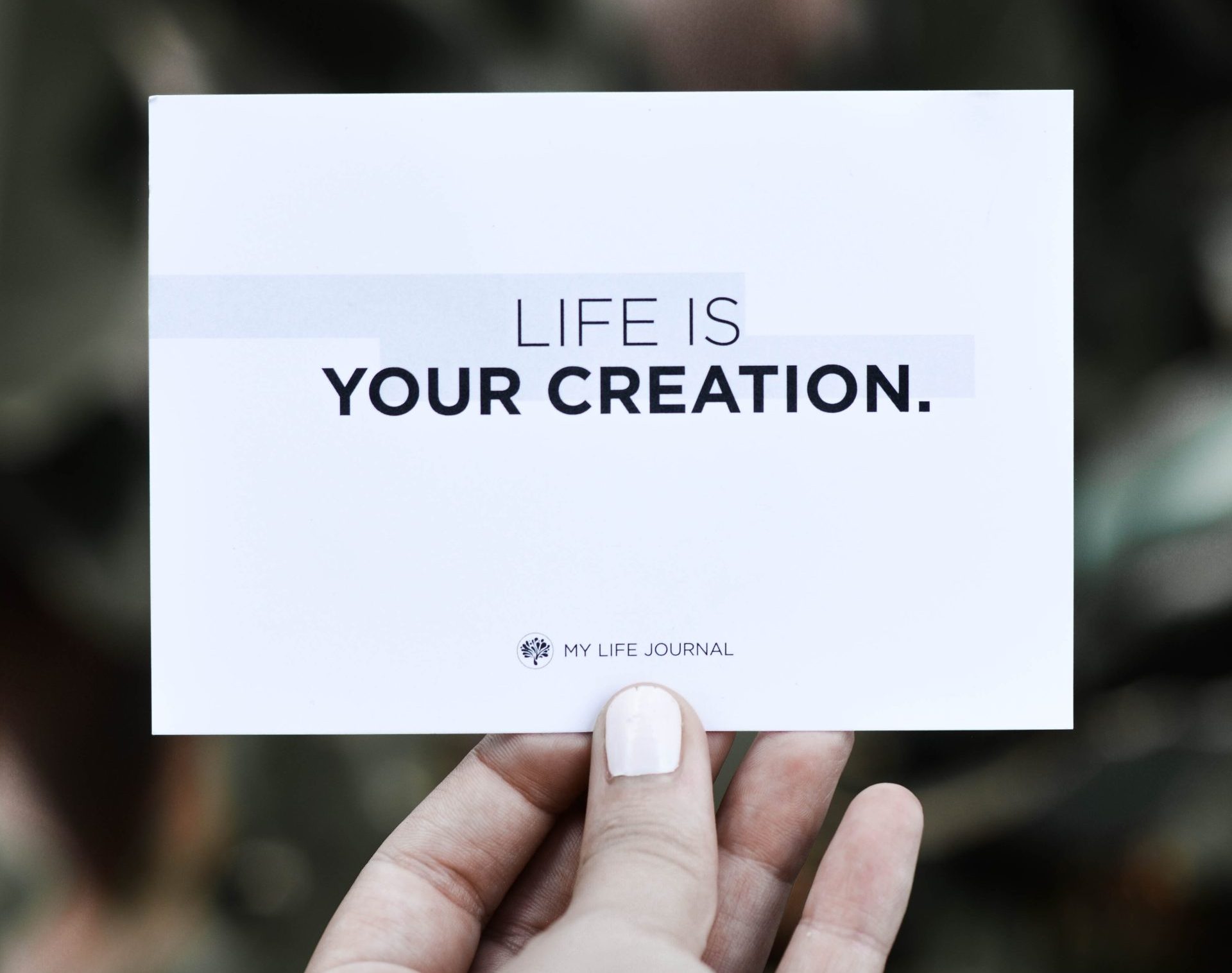
Most of our days have us operating in “reaction” mode in response to other people (our families, employers, customers etc.) and our environments (home, work and all else). We take in tons of information we ingest and process, and decide how we learn or feel about it all. We dodge and weave through an obstacle course embedded in our day, trying to get to the self-imposed finish line. We either get there or we don’t. We cheer just to get through the day, much less claim a trophy. We are like marathon runners, just happy to complete the “rat race” of our day. We can get pretty automated and lose sight of the bigger picture, especially how we actively tune our engines and revitalize our energy sources, and keep our higher vision in front of us. At some point, when we do ask ourselves, “what do I really want?” or “Who am I – really? How do I make sense of this crazy world I live in–how do I navigate it? — a black box appears. You start to step into the realm of existential questioning.
Examples of Existential Questions
How can I be more of “me?” More authentic?
What does it mean to lead an “authentic” life?
What’s the meaning of my life?
What’s my purpose in life?
Do I have a destiny?
Is there really a God?
How do I navigate between my needs and those I love?
What does this “loss” really mean?
What’s next for me?
Is it possible to fail at life?
What’s my definition of a “good life?”
How do I navigate the uncertainties of this next phase of my life?
What am I really running away from? (what responsibility or choice?)
What keeps me afraid of truly living?
How do I grapple with the cruelty and absurdity in the world and the despair and helplessness I feel?
What can I really control in my life?
What is my most fundamental misconception that holds me back?
How do I keep from falling into the same holes?
What am I meant to learn?
Why am I so indecisive?
How do I make better choices?
What is my concept of time?
Where do I most live in time (the past, the present or the future?) What are the benefits, the downsides?
How well do I use my time?
What do I think about death? How does this affect how I live my life?
What are the “breadcrumbs” and recent synchronized events suggesting?

I had a recent opportunity to delve into existentialism as part of a life coaching program — which illuminated its material value in coaching. Existentialism generally resides tucked away in an historical box, full of several philosophers (Camu, Sartre, Nietzche, Kirkegaarde, De Beauvoir and others), some of whom were, allegedly, misogynists, or who had other behaviors and philosophies undermining their credibility. We often see the field as something obsolete, complex and unapproachable. Existentialist philosophies are not generally not connected to spirituality principles or practices. Whether one believes in a deity is itself a looming existential question. For those of us, who approach spirituality with deep, and often undisclosed personal fervor or commitment, we often spend more time seeking something outside of ourselves to believe in to make meaning in our world, versus pursuing our own innate wisdom to generate ultimate well-being.
Putting aside who did or said what in the field of existentialism, what emerged for me was a bastion of important concepts underlying the “great questions” about life. I think of existential questions as part of our “soulwork” we are meant to do to make meaningful changes and set fulfilling directions in our lives. Existentialism represents key principles important to consider as we navigate our lives.
The six tenets or “truths” of existentialism are individuality, authenticity, consciousness, freedom, choice, and responsibility.
— We each have an awareness of our individual existence — co-existing with other unique individuals and their respective societies. We develop the concept of the “Other” to whom we must interact and with whom we compare or contrast our own self-view.. How we consider the Other can expand or restrict our personal development and fulfillment.
— We operate with a unique, individualized worldview, on several levels and through many sub-identities, initiated by what we are born into.
— We live in a chaotic, and most often, absurd world, which we feel compelled to make meaning for ourselves.
— We are free to make choices or address those choices made for us.
— We have to make new choices everyday, and must bear the responsibility and consequences of such choices in face of the unknown. Each choice (or decision), once made, eliminates other choices. Having to make choices creates anxiety and fear (rather than peace and calm). Hence, we live with varying levels of anxiety all the time.
— Due to our awareness as an individual, imbued with deep values and beliefs, there is an innate drive to live authentically. Authenticity is the degree to which an individual’s actions are congruent with their beliefs and desires, despite external pressures to conformity.
–Society (however defined) operates largely to restrict or control an individual’s self view, life and actions (for varying reasons), with the effect of inhibiting free will and the development of that person’s potential.
— We each will be faced at some point with an “existential crisis” — or deep questioning about life’s meaning — usually upon a major loss of some kind that rocks us to the core.
— That we all will one day die generally inspires us to find ways to live fully and appreciate life’s offerings.
Existential principles can seem “dark” for many. It can feel that we are weighed down by the condition of just being human, with no way to transcend it. However, what existential principles can do is challenge our thinking, and more than that, provide a basis to empower us to guide our own lives, together with an inner faith, that transcendence toward a life of meaning and purpose is indeed attainable. Consider that these existential “rules” may very well set up the Game of Life to be played based on what we truly want our lives to outpicture. It is an even playing field from that perspective. Given the condition of being human among other humans, what do we do?
Here are some thoughts derived from existential philosophy that can ignite, rather than inhibit:
— Individualism has power in it. We are here to be unique and offer and thrive from our natural gifts and talents.
— Co-existing with the Other has great value –we are social animals –we need each other. We ultimately have the opportunity and joy to share our love with many Others.
— Though they may seem limited, our choices are more numerous than we think and mostly limited by our imaginations, lack of will, and fear of foreseeable consequences. Even though an individual can be born into nearly impossible to survive circumstances, there still remains the ultimate possibility of “thrival.”
— We can (and do) make positive meaning for our lives, even if the world seems chaotic, cruel and absurd.
— We can each address those existential challenges with a knowing confidence that loss is a part of Life’s game, and as a result of confronting these challenges, build the resilience and personal power to keep playing in appreciation of the life we have lived and will live.
— While death completes the board Game of Life, the possibilities to be gained beforehand are endless. By the time we die, life will have been lived fully and unapologetically.
For those existential questions bubbling up for you, get into quiet spaciousness –mentally and physically, and journal your answers.

Trusting that your answers lie within you is a key step toward addressing the “deep questions” which may be swirling in your mind. We can get dissatisfied and restless with elements of our lives, and seek change or adjustments. Taking the time and space to explore the answers through journaling can be helpful to open up doors of light and understanding, as well as to suggest next steps.( I find I always get an answer when I pose the question, and let that inner voice dictate.)
Consider exploring these questions with a qualified coach, to enable new action and changes for your life.
If you are at a point in your life where you feel morally challenged, that change is necessary, or you want to get over a hurdle that keeps you stuck, consider working with a coach who understands how to address existential-type questioning in the coaching process. Collaborative dialog is a powerful way of unearthing and shifting your perceptions, as well as generating empowering roadmaps for meaningful change. Before committing to a coaching program. Ask for a complimentary sample session.
Dive into the Benefits!
When you consider your life (and death) from an existential perspective, you can appreciate yourself as a pure human being and give yourself more grace and forgiveness –because your problems and preoccupations are the same we all have. They are inherent in being human.

You can realize that your problems are actually opportunities to create new directions and choices, with the full embrace of the consequences.
You can learn that moving in a definitive direction, with whatever its risks, is so much better than circling without end.
You can discover and challenge those underlying beliefs which form the basis for your behaviors, choices and actions.
You can give yourself permission to change your direction, change your mind, and change your thoughts…at any time.
You can bring more presence and gratitude to your life. You can be more Present to the opportunities to love and receive love in your wake.
You can appreciate your uniqueness and the great value you alone can contribute to others. No one else can be you. The need to be concerned about, or seeking to sit in the same shoes of others, can diminish to the insignificant.
You can rediscover how much personal power you have to change and enjoy your life. It’s the only one we have and it is so precious.
